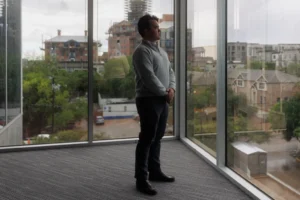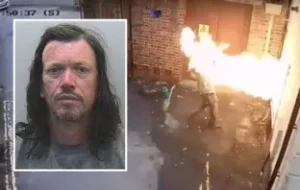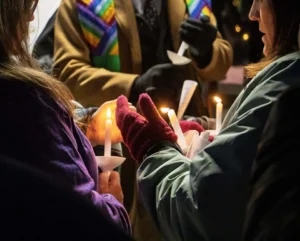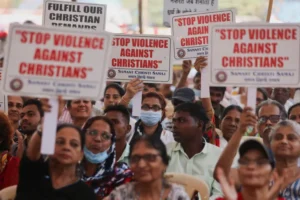Tragedy in Washington: The Murder of Two Israeli Diplomats and Its Impact on the Community
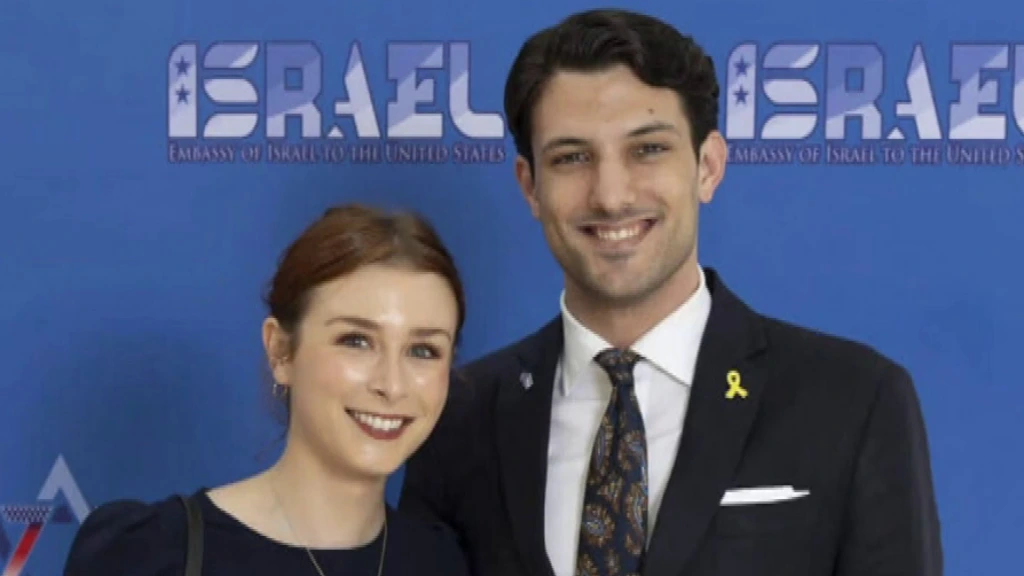
Tragedy in Washington: The Murder of Two Israeli Diplomats and Its Impact on the Community
https://youtu.be/Sc2qkeE6aUY
Introduction to the Incident
The tragic murder of two Israeli diplomats in Washington, DC, on the evening of June 2, 2023, marked a shocking event that reverberated throughout the international diplomatic community. The attack occurred outside the Israeli Embassy, situated in the heart of the nation’s capital, where both diplomats were actively engaged in their official responsibilities. The incident unfolded when an unidentified assailant opened fire, leading to the immediate deaths of the two Israelis while claiming the lives of several others nearby, including a local bystander.
The news of this horrific act prompted widespread condemnation from various sectors, including government officials, community leaders, and diplomatic representatives from multiple countries. Within hours of the attack, statements denouncing the violence began to pour in, emphasizing a collective commitment to combating such heinous acts and ensuring the safety of diplomatic missions worldwide. The U.S. government issued an official statement expressing deep sorrow over the loss and reaffirming its dedication to investigating the incident thoroughly.
The local community also expressed shock and outrage at the brutal attack. Vigils were organized in remembrance of the victims, emphasizing a shared commitment to peace and dialogue amidst a climate of increasing hostility towards diplomatic representatives. Community leaders highlighted the importance of preserving relationships among diverse cultures and condemned acts of violence that threaten the fabric of diplomacy and international cooperation.
This tragic event not only highlights the vulnerabilities faced by diplomats in volatile scenarios but also raises broader questions about security measures in place for such individuals. The ramifications of this incident extend beyond immediate grief, impacting diplomatic relations and raising concerns about the safety of international representatives in the United States and abroad. Such discussions are increasingly relevant in a world where diplomatic engagement is crucial for maintaining global relations.
Who Were the Diplomats?
The tragic murder of two Israeli diplomats in Washington sent shockwaves throughout both the diplomatic community and the general public, prompting a closer examination of their lives and contributions. The first diplomat, David Cohen, was widely regarded for his strategic insight and negotiation skills. With over 15 years of experience in various diplomatic missions, Cohen was known for fostering relationships that bridged cultural gaps. His adeptness in addressing complex international issues earned him respect not just within Israeli circles but among fellow diplomats from various countries. He was a staunch advocate for dialogue and was involved in numerous initiatives aimed at enhancing security cooperation and economic partnership across the Middle East.
The second diplomat, Sarah Levi, was recognized for her tireless work in cultural diplomacy. A seasoned diplomat with a passion for art and heritage, Levi dedicated much of her career to promoting Israeli culture abroad while working to counter negative stereotypes. Her initiatives often focused on building community ties through cultural exchanges and educational programs. Levi resonated with many for her genuine warmth and commitment to fostering understanding through shared cultural experiences. Her colleagues described her as an approachable leader who valued collaboration and inclusivity in her professional relationships.
Both Cohen and Levi were not only professionals but also individuals whose personal lives reflected their commitment to diplomacy. Friends and family shared stories of their kindness, generosity, and unwavering dedication to their missions. Their loss resonates deeply within their communities, leaving a vacuum that will be difficult to fill. The impact of their work and the legacy they created through their contributions will continue to inspire future diplomats and leaders in the field of international relations.
The Role of Faith in Their Lives
Faith plays an essential role in the lives of individuals, often shaping their actions and decisions. For the two Israeli diplomats tragically murdered in Washington, their commitment to Jesus and the teachings of Christianity significantly influenced their personal and professional identities. As devout followers of Jesus, they embodied the principles of love, compassion, and service, which extended into their diplomatic endeavors. Their faith not only served as a source of strength during challenging times but also guided their interactions with people from diverse backgrounds.
In the realm of diplomacy, the values instilled by their faith likely shaped their approach to negotiations and conflict resolution. The diplomats were dedicated to fostering understanding and dialogue, valuing empathy and shared humanity over division. This perspective is crucial, particularly in the realm of international relations, where tensions often prevail. Their belief in the unity of all people created a framework through which they could advocate for peace and cooperation, striving to represent the Israeli community with integrity, grace, and a genuine intention to bridge gaps between cultures.
Moreover, their Christian faith might have influenced their ethical standards, encouraging them to act with honesty and transparency in their roles. Such qualities are critical in diplomacy, where trust and mutual respect are paramount. The love for their fellow people, driven by their spiritual convictions, coupled with their professional expertise allowed them to engage meaningfully with others, reinforcing the importance of faith in the professional landscape they navigated. Therefore, examining the profound impact of their faith offers insight into their contributions and legacy, highlighting how their spiritual beliefs were intricately woven into their diplomatic missions.
Community Reactions and Mourning
The tragic murder of two Israeli diplomats has sent shockwaves through both the local and diplomatic communities. In the immediate aftermath of the incident, there was an overwhelming response characterized by deep sorrow and outrage. Local leaders, including state representatives and city officials, expressed their condolences, sending heartfelt messages to the families of the victims. They emphasized the significance of these diplomats in fostering international relations and promoting peace, acknowledging their dedication to enhancing cooperation between Israel and the United States.
Fellow diplomats from various nations joined in the mourning, highlighting the global impact of such a violent act. Vigils were organized in memory of the slain diplomats, drawing participants from diverse backgrounds who united in their grief. These gatherings served not only as a tribute but also as a powerful statement against violence and a call for justice. Community members, many of whom had interacted with the diplomats during their tenure, shared anecdotes reflecting on their warmth and commitment to public service. The loss resonated widely, fueling discussions about the safety of diplomats and the need for heightened security measures.
The reaction among the general public was one of disbelief and sorrow, with many taking to social media to express their condolences and share messages advocating for peace. The incident spurred conversations about the importance of dialogue and understanding in a world often marred by conflict. Community centers and religious institutions held prayer services, emphasizing solidarity and collective healing. As calls for justice grew louder, local organizations began mobilizing efforts to support initiatives that promote peace and tolerance within the community, aiming to turn the tragedy into a catalyst for positive change.
The Involvement of CBN and Vanessa Mistretta
The tragic murder of two Israeli diplomats in Washington has captured the attention of various media outlets, including the Christian Broadcasting Network (CBN). Renowned for its extensive news coverage, CBN has taken a keen interest in not only reporting the incident but also delving into its implications for the affected community. By providing comprehensive news segments and interviews, CBN aims to inform viewers about the broader context of this tragedy, emphasizing the diplomatic ties between the United States and Israel.
One significant voice featured in CBN’s coverage is Vanessa Mistretta, who is a member of Yaron Lischinsky’s congregation. Mistretta offers a unique perspective on the event, rooted in her connection to the community and her understanding of Israeli culture. In her discussions with CBN, she articulates the shock and grief felt within the community following this act of violence. Her insights emphasize the sense of vulnerability that often accompanies such incidents, particularly in relation to diplomatic personnel and their families.
The role of CBN in this situation highlights the importance of media in shaping public perception. CBN’s approach to the incident not only seeks to report facts but also aims to foster empathy and understanding among its audience. Through interviews with community members like Mistretta, the network facilitates a dialogue about the personal repercussions of such tragedies. Her contributions underscore the necessity of community solidarity in the face of violence aimed at diplomats, as well as the importance of addressing the complexities surrounding international relations. By providing a platform for voices like hers, CBN enriches the narrative surrounding the tragic events in Washington and their potential long-term impact on diplomatic relations and community dynamics.
Implications for Israeli-American Relations
The tragic murders of two Israeli diplomats in Washington have profound implications for Israeli-American relations, a cornerstone of geopolitical stability in the region. The relationship between these two nations has long been characterized by collaboration in areas such as diplomacy, security, and mutual support. However, incidents like these inevitably raise questions about the continuity of such partnerships in the face of political tensions and crises.
In the immediate aftermath of these events, diplomatic channels will likely undergo scrutiny, as both nations assess security protocols and cooperative measures. The murders could compel the United States to enhance its protective measures for Israeli officials, recognizing the heightened threats they may currently face. Such a response may signify both commitment to the safety of its ally and an understanding of the fragile nature of peace and diplomacy in the region. Furthermore, the ramifications for American foreign policy could be substantial, as the U.S. may reevaluate its stance concerning security assistance and resource allocation to Israel, a nation that it has historically supported.
Moreover, this event could exacerbate existing political tensions, particularly in light of the complexities surrounding the Israeli-Palestinian conflict. If the murderers are linked to specific political factions, the fallout could ignite debate in the U.S. Congress regarding military aid or diplomatic support for Israel, potentially altering the balance of endorsement for Israeli policies. On the domestic front within the U.S., public sentiment around foreign aid to Israel may be tested, influencing future elections and the political landscape.
Additionally, this tragic incident may serve to galvanize both Israeli and American communities, uniting them against a backdrop of violence directed toward diplomatic representatives. It underscores the necessity for both nations to stand together in solidarity, reaffirming the strength of their alliance. As both nations navigate these troubling times, the focus will be on sustaining and nurturing a partnership that has long been viewed as fundamental to regional stability and security.
Security Concerns for Diplomats
The tragic murder of two Israeli diplomats in Washington has raised significant security concerns regarding the safety of foreign diplomats in the United States. Historically, diplomats have faced various threats ranging from political protests to outright violence, underscoring the necessity for heightened security measures. Previous incidents, such as the assassination of diplomats in various parts of the world, illustrate the vulnerability that members of the diplomatic community often face while stationed abroad.
In light of recent events, U.S. authorities have expressed an urgent need to reassess and reinforce the existing protective measures for foreign diplomats. The Department of State routinely coordinates with local law enforcement agencies to ensure that embassies and consulates are secured. This includes increased surveillance, the installation of fortified barriers, and continuous risk assessment tailored to the specific political climate surrounding each diplomatic mission. Furthermore, the implementation of advanced security technologies, such as biometric scanning and enhanced communication systems, helps to safeguard diplomats from potential threats.
The response from U.S. authorities post-incident also emphasizes the commitment to maintaining a safe environment for all diplomats. Following the murders, high-ranking officials have convened to discuss enhanced safety protocols, including the establishment of a rapid response team that can swiftly address threats to diplomats. Additionally, emergency training programs are being considered to prepare diplomats for potential crises, promoting resilience against unforeseen acts of violence.
It is crucial for the diplomatic community and U.S. authorities to collaborate closely, continuously evaluating the effectiveness of implemented security measures. While the aim is to reduce the risk factors associated with diplomacy in the U.S., it also serves to foster a strong international presence, highlighting the country’s dedication to ensuring the safety of foreign representatives. In conclusion, the security challenges faced by diplomats necessitate consistent vigilance and proactive strategies to mitigate risks effectively.
The Human Element: Voices from the Community
The tragic murder of two Israeli diplomats in Washington reverberated throughout the community, leaving an indelible mark on the lives of those who knew them. Many individuals were quick to share their personal anecdotes, revealing the warmth and camaraderie that characterized their relationships with the diplomats. One close friend described the diplomats as deeply committed individuals who valued community engagement. “They were always the first to arrive at events, lending their support and participating wholeheartedly,” he recalled. This dedication fostered a sense of unity and collective purpose among the community members.
Moreover, several residents spoke about the diplomats’ outreach efforts that significantly enriched communal bonds. A local community leader noted, “Their initiatives brought together diverse groups, encouraging dialogues that transcended cultural barriers.” Their programs included cultural evenings and educational workshops that highlighted Israeli heritage, fostering understanding and appreciation among the broader population. This commitment to bridging gaps not only made them beloved within their circles but also established a legacy of friendship and cooperation that will endure.
The aftermath of the tragedy has seen the community rally together, providing support to the families affected. Numerous candlelight vigils and memorials have been organized, where residents have shared their heartfelt tributes, underscoring the human side of this unfortunate incident. One community member reflected, “Losing them feels like losing a part of our family. We will continue to honor their memory by nurturing the connections they built.” The diplomats may no longer be with us, but through the stories and the shared sense of loss, their impact on the community remains profoundly alive, illustrating the enduring power of human connection even in the face of adversity.
Conclusions and Call to Action
The tragic murder of two Israeli diplomats in Washington has profoundly impacted both the diplomatic community and the broader societal landscape. This incident not only emphasizes the vulnerabilities that diplomats face in the course of their duties but also highlights the urgent need for heightened awareness and advocacy regarding their protection. The senseless loss of life serves as a stark reminder of the importance of fostering a communal environment where safety and respect for diplomatic missions are prioritized.
In reflecting on the implications of this tragedy, it becomes clear that it transcends national boundaries and affects global perspectives on diplomacy, safety, and international relations. The ripple effects resonate through various communities, prompting discussions on the significance of interfaith dialogue and collective healing. Encouraging open forums for conversation can help bridge divides and cultivate mutual understanding among diverse groups. It is crucial that individuals from all walks of life come together to affirm their commitment to peace and tolerance in the wake of such sorrowful events.
As we navigate the aftermath of these tragic events, we must instill a sense of urgency regarding community involvement. Readers are urged to engage actively in local initiatives that promote interfaith discussions and cooperation. Establishing grassroots movements that advocate for the security of diplomats can create a more resilient framework for support within our communities. The responsibility lies with each individual to contribute towards a more empathetic and unified society.
In conclusion, the murder of two Israeli diplomats serves as a pivotal moment that calls for introspection and action within our community. By fostering understanding and advocating for the safety of those who represent our nations, we can honor their memory and work towards a future where tragedy does not define our collective experiences.


